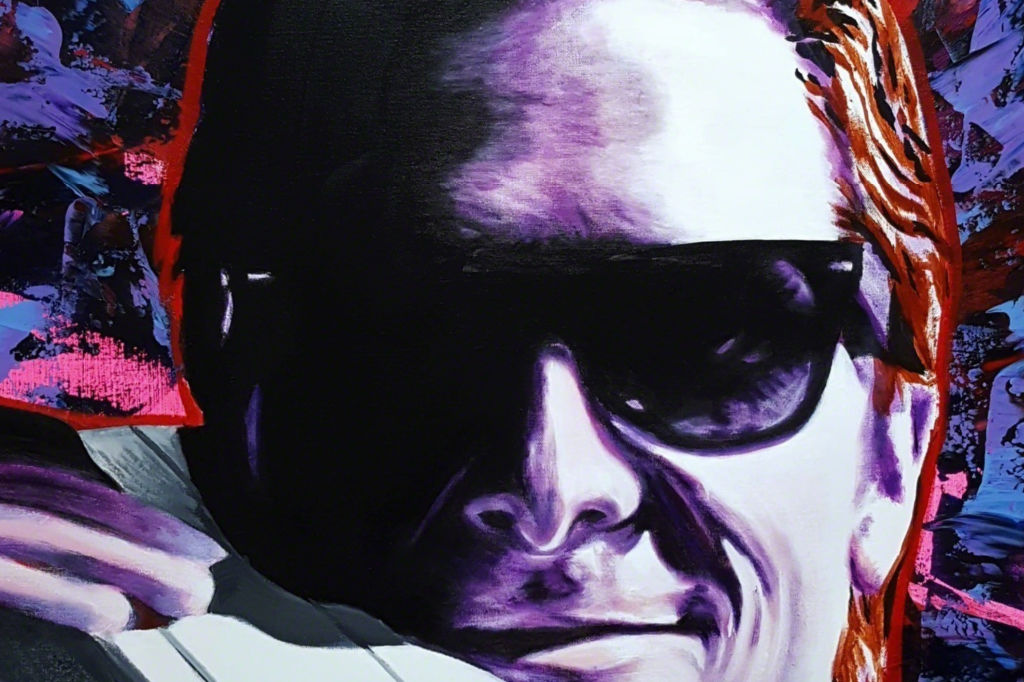Life
 Patrick Bateman. Artwork by Jack Graves III.
Patrick Bateman. Artwork by Jack Graves III.
Gen Z Has Missed the Point of Patrick Bateman
February 9, 2022 @ 11:00am
He’s got the perfect body. He’s got the designer clothes. And he’s got the amazing job.
Regardless, nobody in New York knows who Patrick Bateman is.
No one in the New York of “American Psycho,” that is. Outside this Blockbuster movie/thrilling novel’s universe, Patrick Bateman is a household name.
As a horror icon, Bateman is admirably known as the thinking man’s villain. He is ambiguous yet driven. He has clear ideas, but no intelligible outlet besides murder. He is timid but gets what he wants even if it’s the severed corpse of Jared Leto.
But besides the gore fans admire, Patrick Bateman is a pop culture messiah.
He’s the guy who made Huey Lewis an icon for the 21st century. He’s the role that took Christian Bale from being a run-of-the-mill child star to the best version of The Dark Knight. And oddly enough, he’s the role model to millions of Gen Z “yuppies” here in the District.
The Shrouded Insecure
Growing up, “American Psycho” was my favorite franchise. Not only did the narrative awaken my love for ’80s memorabilia, but it also exposed me to a kind of person I never encountered before: The insecure person who looked like they had it all.
Like I said, Bateman had the clothes, the body and the bankroll. On paper, he is the envy of every social scene and a high standard that seems impossible to match. But when you read “American Psycho” or even watch the film, it is abundantly apparent that Bateman’s a loser.
Sure, his tanned and toned surface is perfect, but it’s obvious he’s a carbon copy cog in the machine.
No one knows who he is despite his desire to be seen. If he’s not being mistaken for Marcus Halberstrom or some other off-screen financier, he is being told to his face Patrick Bateman is a nobody, that he’s a useless bum.
It’s obvious Bateman tries so hard just to have so little. Regardless of the failures and his deplorable murderous outlet, D.C. yuppies (men, primarily) align themselves with his worldview.
Do you #LoveTheGrind?
It’s not uncommon to see a social media post where someone makes light of Bateman’s crimes and highlights his drive and conventional appeal.
Whether it’s #WorkMode or #LoveTheGrind, Bateman is no unfamiliar face or animated image for people to flaunt around. And essentially it’s all jokes — but with many jokes, the gimmick is capable of going on longer than wanted.
I see it mostly in those like me who are fresh out of undergrad and making waves in the graduate or professional realm.
By no means is this new workforce shy, but their presence is ingenuine and rather aggressive.
It’s like you see someone and the person makes a grand effort to acknowledge you and network with you, but nonetheless, you feel an intense mask of ambiguity between yourself and that industry-minded person.
Somehow, you aren’t having the same conversation — but words are still being said.
Because I’m by no means a mental health expert, I reached out to a trusted scholar who could better interpret this observation I came to dread. [Ed. note: the interviewee is a current PhD psychology student who requested for their name and institution to remain anonymous.]
“Generation Z has a strong desire for social interaction,” my source says. “They’ve been exposed to a sense of technology-mediated social presence, but that barrier doesn’t satisfy their needs.”
In adolescence, social media was a wilderness of false presences and manufactured public personas. It was all about creating an image of the people who were wanted and totally abandoning the people who weren’t.
With Gen Z out of the classroom and deep into the workplace, the current social wilderness for working Zoomers is no longer Instagram, but rather LinkedIn.
Excessive Extremist Behavior
When I asked my contact what meaning LinkedIn buzzwords like “yuppie” or the contemporary “girl/boyboss” conveyed, they sensed a level of extremity behind the self-adopted labels.
To them, Gen Z’s presence on professional social media is “over-confident and hyper-professional.”
“There is a strong desire to be seen or acknowledged. Their personas can be confrontational and prone to hyper-judgment.”
The excess of networking events is also a detriment to genuine sociality.
Sure, hanging with colleagues can be fun, but when you constantly put yourself in a position to “sell” yourself, the pressure of that social mask is overwhelming and doesn’t stray far from how Patrick Bateman carries himself.
“It’s not likely people exposed to Bateman’s presence will mimic his violence, but the character does normalize excessive and extremist behavior,” implored my contact.
There is no gray area in the eyes of Patrick Bateman.
Everything is black or white and what makes the idea of such a duality distressing is how many modern figures use that no exception, “right or wrong” mentality.
Whether it’s far-right figureheads Yiannopoulos or McInnes, media has generated a new vanguard that exudes an “all-or-nothing” ideology. Young Americans are being taught that there is no multi-faceted world, but rather one definite viewpoint to abide by.
“With the advent of extremism in social and professional settings, looking at people holistically would be helpful,” advised my source. “Acknowledge strengths and weaknesses. Instead of black and white or meaningful and meaningless, some things can have a lot of meaning and others less.”
Workplaces don’t have to feel like home, but when even your social life is a rat race it’s like you’re never off the clock.
We can’t turn off the desire to be seen. Wanting to be seen is human. But when being seen makes up the basis of Gen Z’s self-worth and it becomes a matter of being something or absolutely nothing, it’s almost like my entire generation missed the point of Patrick Bateman.
Ready to “meet” the Gen Z pop culture messiah Patrick Bateman? Catch the movie “American Psycho” and order the book on Amazon Prime.
Enjoy this piece? Consider becoming a member for access to our premium digital content. Support local journalism and start your membership today.







